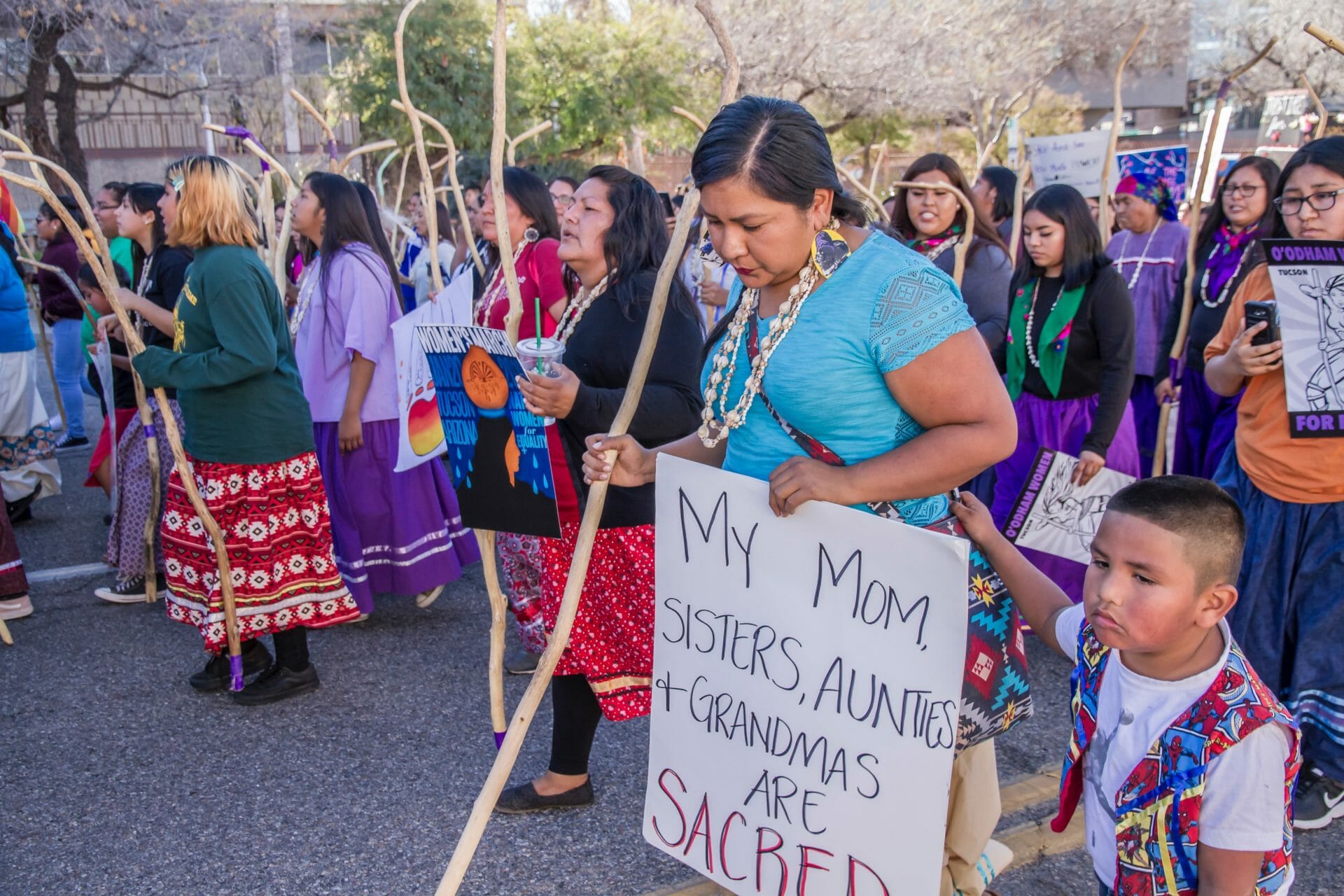
Photograph by Dulcey Lima via Unsplash
The tragedy of Gabby Petito in Native American perspective
Rev. Bryan Jackson
September 29, 2021
What happened to Gabby Petito is unquestionably tragic. But so is what has happened to over 700 Native American women and children gone missing in the state of Wyoming. A Cherokee Nation citizen friend of mine and I were discussing the Petito disappearance (now confirmed homicide) the other day, expressing our usual bewilderment and frustration as Native descendants about the ever-present reality of missing and exploited American Indian women every year that never get the media coverage and concern that non-Native, Caucasian women seem to attract.
As a former police officer, I find it reprehensible that FBI and local law enforcement lack urgency on the investigative front when Native American women, girls, and two spirits go missing. To compound the issue, senior editors in the mainstream media seem to find the subject of Native women being assaulted, raped, or murdered an absolute and confounding bore. Cherokee Nation citizen and attorney Mary Kathryn Nagle, partner at Pipestem & Nagle, P.C., eloquently discusses this matter in the transcript of an enlightening interview on New York Public Radio’s “The Takeaway.”
She points to the FBI and other federal agencies having jurisdiction not just in America at large, but on federal Indian land as well. Yet, these entities, as well as the media and the general public, show an aggravating lack of curiosity about Indian women and children in this country. Nagle goes on to describe her legal experience of families testifying that their relative would never behave a certain way—often a way that the FBI and other agencies weakly conclude are the facts—and then having the authorities close the case based on inadequate assumptions.
What happened to Gabby Petito is unquestionably tragic. But so is what has happened to over 700 Native American women and children gone missing in the state of Wyoming.
I am deeply troubled by the lack of curiosity, at times laced with sarcasm or even contempt, directed toward these women, many of whom have demonstrated mental health issues and histories of previous violent sexual abuse. One such situation is the case of the late Misty Upham (Blackfeet Nation), who appeared in “Frozen River” and the family systems-entrenched film, “August: Osage County.” Upham’s personal life was fraught with psychiatric problems, stemming most likely from her story of early violent sexual assault. Her character Johnna in “August” won me over in a display of wonderful irony when she goes after Dermot Mulroney with a shovel after his own character is caught taking advantage of a 14-year-old girl.
I am usually sympathetic toward police, having done the job myself. I comprehend how incredibly difficult the work can be and know that many in this country have a skewed and unrealistic perception of law enforcement. Yet here we have yet another societal concern that directly affects a specific race and ethnicity. It’s locked in a warped paradigm that is a reflection of centuries of ignorance about Native people. With regard to Misty Upham, suspicion still surrounds her death and events leading up to it. Her family’s frustrations with police in my own state of Washington are symbolic of a problem that has ancient roots in U.S. government-Native American relations. Nagle reminds us that it is more than just bureaucracy that is preventing change, it’s about attitude:
“…tribal nations are without criminal jurisdiction to prosecute the homicides committed against native women and children perpetrated by non-Indians. We look to the federal government to do its job and in most cases, in the vast majority of cases, it simply is not.”
This is why those of us in the Native American community are often stunned to silence when we see these high-profile cases (or what the media converts to high-profile cases) of mostly Caucasian women and just shake our heads. It begs a crucial question: Was Gabby Petito more important than Misty Upham? Moreover, was her experience with her apparent abuser more profound, more urgent, more desperate than that of the 700-plus women and children missing in the state of Wyoming? Is her case more vital to the American concern than any of the missing, exploited, and murdered Native American women and children?
The Gospel of Mark records, “And he said to them, ‘Go into all the world and proclaim the gospel to the whole creation.’” (Mark 16:15 ESV) This tells me that everyone is included in that good news, not just those who appeal to the authorities’ ideal of what makes for a proper victim.
Rev. Bryan D. Jackson is an American Baptist minister and a member of the Cherokee Community of Puget Sound and the Mt. Hood Cherokees, both satellite communities of the Cherokee Nation. He lives on Vashon Island, Washington and is the author of Chattahoochee Rain: A Cherokee novella.
The views expressed are those of the author and not necessarily those of American Baptist Home Mission Societies.


